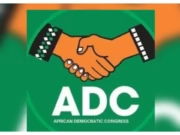In Abuja today, the Education Minister, Dr. Tunji Maruf Alausa, raised an urgent concern: technical colleges across Nigeria are experiencing chronically low enrolment, fuelled largely by public indifference and parental misconceptions surrounding vocational education.
During a three‑day working session on the 2025 National Common Entrance Examination (NCEE) results and the selection protocol for Federal Technical Colleges (FTCs) held in Benin City, Edo State, Alausa — represented by Dr. (Mrs.) Olodo M.A., Director of Technology and Science Education, made plain his worries about Nigeria’s neglect of skills training pathways.
Table of Contents

Societal Attitudes Undermine TVET Participation
Alausa emphasized that persistent societal apathy and poor parental perceptions of Technical and Vocational Education and Training (TVET) have crippled efforts to build a robust pipeline of skilled artisans, technicians, and tradespeople. Despite the Ministry’s recent introduction of free tuition for Federal Technical College students, the uptake remains stubbornly low, indicating that financial incentives alone are insufficient.
Families continue to favour academic schooling as the sole route to success, while TVET is regularly stigmatised as a fallback option. The Minister called for intensified sensitisation campaigns and community outreach to correct these long‑standing misconceptions and reposition vocational training as a viable, respected pathway.
Policy Measures: Free Education and Structural Reform
To reverse the declining trend, the Federal Ministry of Education rolled out a National Policy on Skills Development, designed to rally stakeholders across states and raise awareness about technical trades. The policy pairs publicity efforts with concrete incentives such as no tuition, combined with accommodation, feeding, and a government‑paid monthly stipend of ₦22,500 for FTC students.
Alausa also highlighted a major policy shift recently approved at the 2025 Extraordinary National Council on Education: Federal Skills Training Colleges (FSTCs) have been transitioned into FTCs, now coming under the direct oversight of the Department of Technology and Science Education. This structural realignment signals a stronger federal commitment to enhancing oversight, quality, and uniformity across all FTCs.
Voices from NABTEB: Infrastructure, Teachers, and Social Barriers
At the same event, Dr. Mohammed Aminu Mohammed, Registrar and CEO of the National Business and Technical Examinations Board (NABTEB), echoed the Minister’s concerns. He cited three main barriers to technical training uptake:
- Inadequate Equipment: Many trades lack properly equipped workshops and tools, undermining educational quality and career readiness.
- Shortage of Qualified Instructors: A dearth of experienced TVET educators limits practical skills transfer and dampens student engagement.
- Social Disincentives: Deep‑rooted stigma around technical training discourages enrolment even when facilities and policies improve.
Dr. Aminu has consistently advocated for vocational education as pivotal to Nigeria’s economic renewal. During a recent monitoring visit to Lagos technical colleges, he applauded well‑resourced facilities and pushed for a national revival of trade training to reduce import dependence and nourish domestic industry.

Financing the TVET Agenda: ₦120 Billion Injection and Ambitious Targets
In a bold financial effort to elevate TVET, President Bola Ahmed Tinubu approved ₦120 billion to propel the Federal Ministry of Education’s Technical and Vocational Education and Training agenda. The infusion is part of the broader Nigerian Education Sector Renewal Initiative (NESRI), targeting the skills gap by imparting technical, vocational, and digital training to at least 650,000 youths by 2027.
NESRI’s goals encompass no‑fee technical schooling, stipends, start‑up grants, and wide accreditation of public and private TVET centres. This effort aligns with Tinubu’s broader vision of transitioning Nigeria from a resource‑based to a knowledge‑based economy, with TVET as one of NESRI’s six strategic pillars, along with STEMM (Science, Technology, Engineering, Mathematics & Medical Sciences), digitalisation, and literacy drives.
Why the Decline Persists: Beyond Free Fees
Despite substantial policy and financial commitments, uptake remains insufficient. Experts point to enduring structural and cultural issues:
- Limited Funding and Poor Infrastructure: Most technical colleges still struggle with dilapidated facilities and obsolete curricula, undermining their appeal. According to several studies, the education budget frequently falls short of the UNESCO‑recommended 15–20 percent of national budget, impairing resource allocation and maintenance across the sector.
- Teacher Shortage and Brain Drain: Many skilled instructors have emigrated or left the field due to poor pay and working conditions. This shortage directly impacts student performance and institutional credibility.
- Curriculum Misalignment: TVET programmes often lack alignment with current industry requirements, with outdated materials and no link to emerging digital or green economy skills. This mismatch fuels youth disinterest and employer distrust in TVET graduates’ competencies.
- Perception and Prestige Gaps: Vocational education is still widely viewed as inferior—a second‑choice route reserved for underperforming students, not a career‑oriented track deserving pride or investment.
A Strategic Path Forward: Recommendations for Revival
1. Renew Public Perception
Sustained public campaigns featuring successful TVET graduates and endorsements by employers can challenge stereotypes and elevate vocational training.
2. Strengthen Teaching Capacity
Substantially upgrade instructor training, offer competitive incentives, and encourage partnerships with industry professionals to teach or mentor.
3. Modernise Infrastructure
Use portions of federal funding and public‑private partnerships to equip workshops with contemporary tools, digital facilities, and up‑to‑date curricula.
4. Forge Industry Alliances
Develop apprenticeship frameworks and employer‑led certification pathways, ensuring that TVET remains relevant to labour market needs.
5. Monitor and Evaluate
Set measurable annual targets for enrolment, retention, and post‑graduation employment metrics, with regular public reporting to track progress.
The Stakes: TVET as Cornerstone of Economic Recovery
Nigeria’s over‑dependence on imported goods and limited local production capacity became glaring during the COVID‑19 pandemic. Commentators agree that neglecting vocational education invites long‑term economic vulnerability. Returning artisans and craftsmen to their rightful place in economic activation could enable domestic manufacturing, reduce import bills, and create youth employment at scale.
The Minister’s clarion call stresses that free education alone can’t solve the challenges. Without societal reorientation, quality assurance, and strong infrastructure, even the boldest policies will struggle to achieve impact.

Summary
- Societal apathy and parental stigma remain the central hindrances to TVET enrolment.
- Policy reforms, including free tuition, stipends, and institutional restructuring, signal government commitment.
- Financial backing of ₦120 billion represents one of the largest TVET investments in recent memory.
- Persistent structural gaps—infrastructure, curriculum, teaching staff, and perception—are limiting results.
- Reviving technical education requires a holistic effort: public messaging, industry engagement, teacher development, and transparent evaluation.
As Nigeria aspires for economic diversification and sustainable development, the success of technical colleges will play a pivotal role. Without a shift in societal mindset and enhanced quality across TVET institutions, the nation risks continuing to undervalue skills that could transform youth livelihoods and national productivity.
Join Our Social Media Channels:
WhatsApp: NaijaEyes
Facebook: NaijaEyes
Twitter: NaijaEyes
Instagram: NaijaEyes
TikTok: NaijaEyes
READ THE LATEST EDUCATION NEWS







































